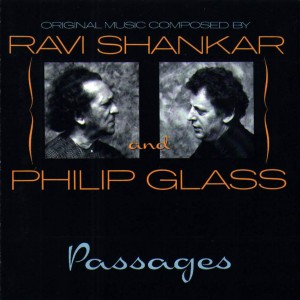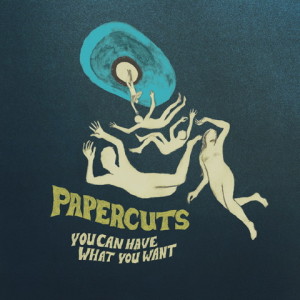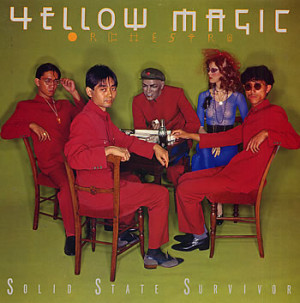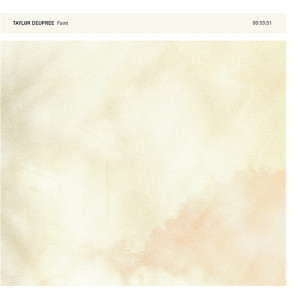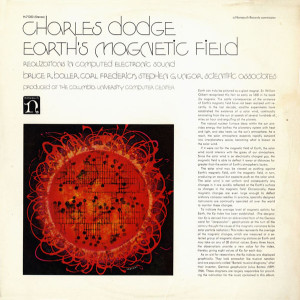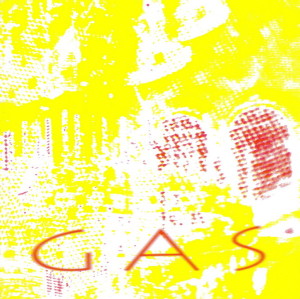Favorite Records (an occasional series)
My cousin introduced me to new age and world music when I was around twelve or thirteen years old: Suzanne Ciani, Wendy Carlos, whale song, Environments, and Philip Glass, who I immediately gravitated to, as I loved repetition and the miasma of minimalist music, which reminded me of the feelings of dizziness I enjoyed as a child. I remember when he bought Passages, because he played it ceaselessly during one weekend visit, and it lent a mysterious, exotic air to his southern New Jersey home, transforming that space into a dusty, ancient world I hadn’t known before. I can almost smell it, it’s hard to explain easily.
I bought the cassette, hoping to recreate this atmosphere in my own teenage room, and it has been a constant companion to me since 1990. I find, today, that I don’t care for the Glass compositions as much (though I find myself still drawn to Steve Reich), but the Shankar-driven compositions still hold a magical, calming power, particularly “Prashanti,” which ends with a marvelous Vedic prayer that I find comforting to this day. “Oh, Lord. Be benevolent to us. Drive the darkness away. Shed upon us the light of wisdom. Take the jealousy, envy, greed and anger from us, and fill our hearts with love and peace.” At terrible moments of my life, I would listen to this song and feel healed by it, even if it was only a temporary sensation. I am still in awe of the marvelous feeling of peacefulness and well-being I feel when I hear these words; it is a pure salve for the spirit.
+ + +
This album very much reintroduced me to indie rock, after many years of listening to almost exclusively ambient or electronic music. It was a little bit like finding my words again. The white expanses of ambient music (Thomas Köner, for example) seemed to fit the kind of non-verbal places I was in during most of my twenties and gravitating to a record that was unabashedly 60s in feel was a big step for me. Yet it’s not really that much of a rock album, I guess, since so much of it sounds like the cover art, with humans(?) tumbling from some kind of celestial or alien craft, presumably toward earth.
I’ve felt like this much in my life, like an alien accidentally dropped into reality, and I think this album does a nice job of communicating that in echoing vocals and a textural, psychedelic sound. In retrospect, finding interest in an album like this was me returning to earth, at least emotionally, but I wouldn’t realize that for a while. I still play this album a lot.
+ + +
When I was a teenager, I was (and still am) very much into Kraftwerk; not very surprising. There wasn’t much like them and I think I bought this expecting something similar. I guess it was similar (after all, look at the mannequin seated with the handsome real band members) but I really didn’t get it. It seemed like such silly music, like dumb disco. I much preferred the icy, robotic mien of Kraftwerk, and I was certainly too young and serious to detect Kraftwerk’s humor, at 18 or 19 years old.
Years later I revisited YMO and it was very much akin to realizing how mature I’d become by realizing how not uptight I was. This is fun music with beautiful melodies and technophile positivity. It’s just so unique and, god, look at how these dreamboats were like futuristic pop stars. I can’t quite put my finger on the utopian aspect of their sound (and look), but it reminds me of Bill Nelson’s work during the same era, so it’s no surprise they were collaborators. Solid State Survivor makes me feel so adventurous; it really makes you feel like anything can happen.
+ + +
Growing up in the NYC area during the prime years of club kids (though I certainly was not a club kid!) was really wonderful. I seem to have been in the right place during a very particular time in NYC club culture, even though I was too poor to go to these club events as regularly as I would have liked. Deupree was part of that culture and Human Mesh Dance were very much on my radar along with a lot of the other Instinct artists of that time. Artists of that era’s transition from techno to minimal music very much mirrored the direction of my own interests, too.
I’ve followed Deupree closely, and have many other favorites in his work, but this recent album was such a wonderful surprise. I have listened to it all night on so many nights over the last year. It’s so engaging when you pay attention; peaceful, atmospheric, enveloping. Sometimes I feel like all of the statements have been made in traditional ambient music, but this album sounds so fresh and natural and modern, does that make sense? It’s particularly wonderful in the pre-dawn hours, as you drift in and out of sleep. It’s a balm for modern anxiety to me.
+ + +
I found this LP in the Purchase College library one afternoon. I think I bought it because of the cover, but I’m not sure now. At this point in my life, I can’t say that I’m much of an intellectual, but this could be slotted into a category of conceptual electronic music that came out of an academic world, rather than weirdo artists or German stoners playing with synthesizers like Throbbing Gristle or Ashra. It doesn’t sound sterile to me, though. It sounds rather like the title.
I like to think that there is a natural music in any given thing (like when they slowed down a recording of crickets that sounded like a beautiful choir when at the speed of their actual lifespans), and this certainly feels like some celestial chaosmusic. Truthfully, it reminds me most of when I played with children’s instruments as a kid — we had this Bontempi organ that sounded remarkably like Charles Dodge’s sonorous tones on this LP. In that respect, this album sounds like the most joyful kind of play, like machines singing to themselves deep in space, in their own languages.
+ + +
I have a hard time explaining this record. It was so different in 1996, it felt like hearing a new kind of music that had just gotten invented. Now there is tons of music that sounds like this, but, seriously, this came out before Boards of Canada even had an album. I heard it driving to my girlfriend’s house late one night in 1996 on WFMU and pulled over to a pay phone to call and find out what it was. How did music like this not exist prior to then?
It’s sad and vast and joyful. It’s what I hope that weird tunnel of light sounds like when you die, it just feels like all of music compressed into a single eternal moment, like something the aliens left behind in Roadside Picnic. I saw Wolfgang Voigt perform GAS a few years back and it was one of the most emotional and intense concert experiences I’ve ever had. For me there isn’t a better ambient record.
